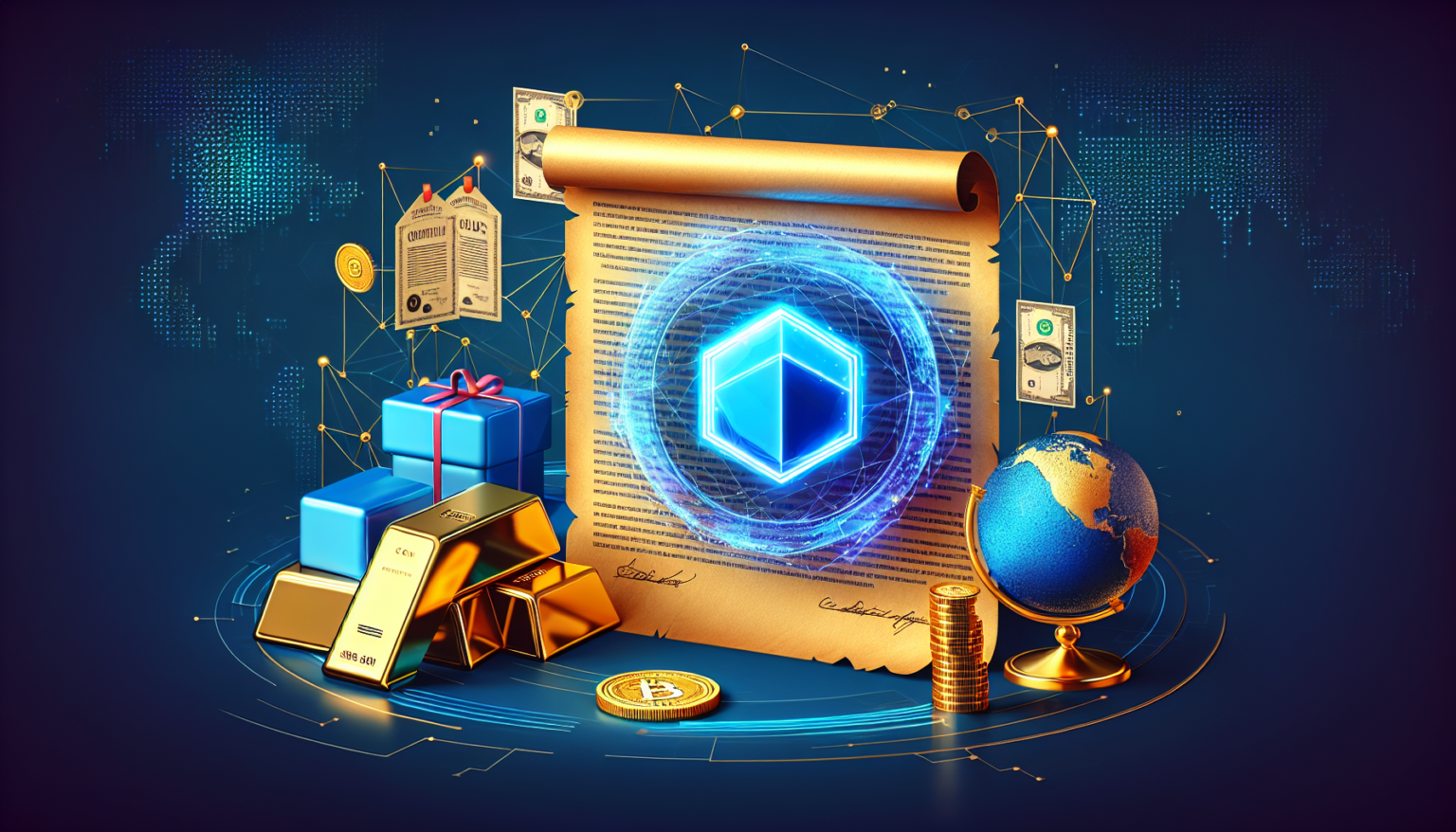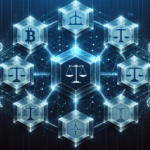The Essence of Smart Contracts
What Are Smart Contracts?
Smart contracts are self-executing contracts with the terms of the agreement directly written into code. They operate on blockchain technology, enabling trustless transactions and reducing the need for intermediaries. These contracts automatically enforce and execute actions when predefined conditions are met, streamlining processes and minimizing the risk of human error.
How Do Smart Contracts Work?
Smart contracts function through a set of coded instructions that outline rules and expectations. When a triggering event occurs—such as a payment being made—the smart contract executes the specified actions. This could involve transferring assets, updating records, or enforcing compliance. The decentralized nature of blockchain ensures that the data is immutable and transparent.
<h2(Tokenization of Real-World Assets
Understanding Asset Tokenization
Asset tokenization refers to the process of converting physical or tangible assets into digital tokens on a blockchain. These tokens represent ownership, rights, or shares in the underlying asset. Assets can vary from real estate and art to commodities and intellectual property. Tokenization opens doors for increased liquidity, accessibility, and efficiency.
The Benefits of Tokenization
One of the primary benefits of tokenization is fractional ownership. By breaking down assets into smaller, more affordable tokens, investors can purchase shares of high-value items that would typically be out of reach. This democratization of investment opportunities allows a broader audience to participate in markets and invest in real-world assets.
Additionally, tokenization enhances liquidity. Traditional investments often require extensive time and effort to sell or transfer ownership. However, tokenized assets can be traded quickly on various platforms, subject to the conditions set in the smart contracts. This liquidity is particularly appealing in markets where speed and efficiency are crucial.
The Interplay Between Smart Contracts and Asset Tokenization
Smart Contracts as the Backbone of Tokenization
At the heart of asset tokenization lies the functionality of smart contracts. They provide the necessary framework to manage the lifecycle of a tokenized asset, from creation to transfer and eventual liquidation. Each token’s ownership, history, and rights are stored and updated on the blockchain, ensuring that all participants can verify and track asset status seamlessly.
Ensuring Compliance and Security
One of the most essential roles of smart contracts in asset tokenization is ensuring compliance and security. Regulatory requirements can vary significantly based on geography and asset types. Smart contracts can be programmed to include compliance checks that automatically validate transactions against legal frameworks, ensuring that all trades are legitimate.
Furthermore, the immutable nature of blockchain technology enhances security. Once a smart contract is deployed, it cannot be altered without consensus, reducing the risk of fraud or manipulation. Every transaction associated with the token is recorded on the blockchain, providing an auditable trail that enhances transparency.
Real-World Applications of Smart Contracts in Asset Tokenization
Real Estate
Real estate is one of the most promising sectors for asset tokenization. Traditionally, buying or selling property involves lengthy processes filled with paperwork, intermediaries, and high transaction costs. However, using smart contracts, a property can be tokenized, allowing for fractional ownership. This setup enables multiple investors to own shares of high-value properties, splitting the associated costs and returns.
On a smart contract, various clauses can be integrated to manage lease agreements, maintenance responsibilities, or even dividend distributions from rental income. By leveraging blockchain technology, real estate transactions can be accelerated, and paperwork can be minimized.
Art and Collectibles
The art world has also embraced tokenization through smart contracts. Artwork can be tokenized and sold as fractions, allowing art enthusiasts and investors to buy shares in high-value pieces. This opens up the possibility for smaller investors to reach markets that were once exclusively for wealthy buyers.
Smart contracts in this arena can handle royalty agreements, ensuring that artists receive a percentage of future sales whenever their artwork is resold. This feature creates a more equitable revenue model for creators, fostering a supportive ecosystem for artists and collectors alike.
Commodities and Precious Metals
Commodities like gold, silver, and oil can also benefit from tokenization through smart contracts. By tokenizing these physical assets, owners can establish ownership while enabling easy transferability. Each token can represent a specific quantity of a commodity, making it easier for buyers and sellers to trade.
Smart contracts can guarantee the authenticity and provenance of these commodities. For instance, a token representing a certain weight of gold can include clauses that verify the quality and source of the metal, assuring buyers of legitimacy and preventing fraud.
Intellectual Property
Intellectual property rights can be complex, with various stakeholders involved in licensing and royalties. Through asset tokenization and smart contracts, intellectual property can be digitized, allowing creators to maintain control over their work while automating the licensing process.
Smart contracts can automatically distribute royalty payments each time an intellectual property asset is utilized or sold. This ensures that creators receive fair compensation and reduces the administrative burden involved in tracking and managing rights.
The Challenges of Smart Contracts in Asset Tokenization
Integration with Existing Frameworks
One of the significant challenges in implementing smart contracts for asset tokenization is integrating them with existing legal and regulatory frameworks. Different regions have various legal interpretations of smart contracts and tokenized assets. As a result, developers must carefully consider compliance aspects and ensure that smart contracts align with local laws.
Technological Limitations
While smart contracts are robust, they are not infallible. Issues such as bugs in the code, network failures, or unexpected external events can disrupt the functionality of smart contracts. The exact nature of blockchain technology can also pose scalability challenges in handling a vast number of transactions simultaneously.
Public Perception and Understanding
Lastly, there often exists a knowledge gap among the general public regarding blockchain and smart contracts. Many potential investors may not fully grasp these concepts, making them hesitant to participate in tokenized markets. A concerted effort towards education and awareness will be crucial in promoting trust and engagement.
The Future of Smart Contracts and Asset Tokenization
Potential Trends and Developments
As technologies continue to evolve, the role of smart contracts in asset tokenization is expected to expand. We may see greater adoption across various sectors, driven by increased recognition of the benefits they offer. With enhanced security solutions and improved user interfaces, the barriers to entry for investors could decrease.
Moreover, as regulatory clarity improves, we could witness broader acceptance of tokenized assets in traditional financial systems, further integrating these assets into mainstream investment portfolios. Ultimately, the collaboration between traditional finance and blockchain innovations may redefine ownership and investment paradigms.
The Path Ahead
For now, the journey toward widespread adoption of smart contracts in asset tokenization is underway. As stakeholders from different sectors collaborate and innovate, the possibilities for enhancing transaction efficiency and accessibility continue to expand. The excitement surrounding this dynamic field is palpable, creating a foundation for a reimagined future where assets can be tokenized and traded with unprecedented ease and security.








